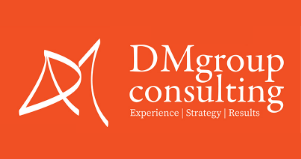Strong leadership is crucial for the success of any nonprofit organization. Board members play a critical role in guiding the organization’s mission and making important decisions. However, to lead effectively, board members need the right training and support. Training helps them understand their responsibilities and develop the skills needed to govern with confidence.
Creating a comprehensive training program for board members ensures that they are well-equipped to handle their roles. This involves teaching them about their responsibilities, providing essential skills training, and fostering effective communication among the team. The goal is to build a confident, capable board that can guide the organization toward its goals.
In this article, we will discuss how to train board members to lead with confidence. By understanding their roles, providing essential training, cultivating strong communication, and offering ongoing support, you can empower your board members to become effective leaders. This guide will provide practical steps to help you achieve this goal in 2025.
Understanding the Role of Board Members
Defining Responsibilities and Expectations:
To lead effectively, board members must clearly understand their responsibilities and what is expected of them. This includes overseeing the organization’s mission, making strategic decisions, and ensuring financial stability. Providing a detailed job description for each board role helps set clear expectations. Regular orientation sessions can also ensure all members are on the same page. Clear definitions help board members know their duties and avoid misunderstandings, leading to more confident and effective leadership.
Importance of Governance and Oversight:
Governance is a critical aspect of a board member’s role. This involves setting policies, ensuring compliance with laws and regulations, and maintaining ethical standards. Good governance practices help the organization run smoothly and maintain its reputation. Board members should also engage in oversight to monitor the organization’s performance and address any issues promptly. Training in governance principles helps members understand their role in maintaining the integrity and accountability of the nonprofit.
Providing Essential Training Programs
Leadership and Decision-Making Skills:
Training programs that focus on leadership and decision-making skills are essential for board members. These skills enable them to guide the organization strategically and make informed decisions. Workshops on leadership theories, decision-making processes, and crisis management can be highly beneficial. Board members should practice scenarios where they need to make tough choices, ensuring they are prepared for real-world situations. Building these skills boosts their confidence and improves their overall effectiveness.
Financial Literacy and Resource Management:
Board members need a strong understanding of financial concepts to oversee the nonprofit’s budget and resources properly. Training in financial literacy covers essential topics like budgeting, financial reporting, and fundraising strategies. Board members should learn to read and interpret financial statements, such as balance sheets and income statements. This knowledge allows them to make sound financial decisions and ensure the organization’s sustainability. Effective resource management training helps board members allocate resources efficiently, maximizing the organization’s impact.
Cultivating Effective Communication and Collaboration
Building Strong Relationships Among Board Members:
Strong relationships between board members are key to a cohesive and effective team. Organize team-building activities that encourage camaraderie and mutual respect. These activities can range from informal gatherings to group workshops that focus on teamwork and cooperative problem-solving. Encourage board members to share their interests and backgrounds, which helps to build personal connections. A unified team works more efficiently and can tackle challenges with a collective approach.
Encouraging Open Dialogue and Active Participation:
An atmosphere of open dialogue is essential for a productive board. Create a safe environment where members feel comfortable sharing their thoughts and opinions. Encourage active participation through structured meeting agendas that allow time for discussion and feedback. Establish norms for respectful communication and active listening. By fostering a culture of openness, you ensure that all voices are heard, and diverse perspectives are considered in the decision-making process. This collaborative approach leads to more balanced and well-rounded decisions.
Implementing Ongoing Support and Development
Mentoring and Coaching Opportunities:
Continual support is vital for board members to grow into their roles. Pair new members with experienced mentors who can provide guidance and share valuable insights. Coaching programs tailored to individual needs help board members strengthen their leadership skills. These programs can include one-on-one sessions, group workshops, and online courses. Establish a mentorship protocol that outlines the mentor’s responsibilities and the expected outcomes. Regular mentoring and coaching sessions enhance skills and build confidence over time.
Regular Performance Reviews and Feedback Sessions:
Monitoring progress through performance reviews helps board members stay on track and improve continuously. Set up regular feedback sessions to discuss individual and group performance. Use these sessions to recognize accomplishments, address concerns, and set new goals. Anonymous surveys can also provide honest feedback on board dynamics and effectiveness. Constructive feedback fosters growth and ensures the board remains aligned with the organization’s goals. Regular reviews and open communication about performance emphasize accountability and dedication.
Final Thoughts
Training board members to lead with confidence is a multifaceted process that requires clear understanding, effective training, strong communication, and ongoing support. Each aspect – from defining roles to providing regular feedback – plays a crucial role in building a capable and confident board. Dedicated training and support empower board members to make informed decisions, foster a collaborative environment, and guide the organization toward achieving its mission.
If you’re looking to enhance your nonprofit’s board training process, DM Group Consulting can provide the expertise you need. Our services ensure your board members are equipped to lead with confidence and drive your organization forward. Contact us today to learn how DM Group Consulting can support your nonprofit in building an effective and dedicated board.




